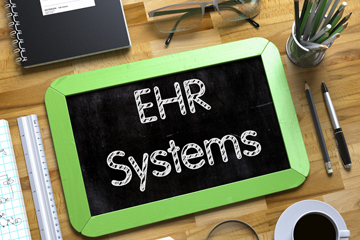 EHR Incentive Programs have helped electronic health record (EHR) adoption to grow across most care settings and providers who choose to outsource medical transcription are assured of timely and accurate physician notes, patient charts, and medical reports. Efficient health data exchange through EHR interoperability is widely recognized as a key strategy to improve patient outcomes. Recent reports say that providers are now pushing for incorporating behavioral health data into primary care EHR technology.
EHR Incentive Programs have helped electronic health record (EHR) adoption to grow across most care settings and providers who choose to outsource medical transcription are assured of timely and accurate physician notes, patient charts, and medical reports. Efficient health data exchange through EHR interoperability is widely recognized as a key strategy to improve patient outcomes. Recent reports say that providers are now pushing for incorporating behavioral health data into primary care EHR technology.
Combining primary care with behavioral health care in the practice setting is a win-win strategy for many reasons.
- Improves patient health – When primary health care is inclusive of mental health care, patients may enjoy better outcomes in their overall health and better satisfaction.
- Reduces physician burnout – Teams within primary care practices are specially trained to improve their skills in caring for patients with mental health disorders. The team-based approach reduces physician burnout.
- Reduces health care costs – Treating depression and other mental health conditions can reduce the incidence of emergency room visits and hospitalizations.
Starting January 2017, the Centers for Medicare and Medicaid Services (CMS) pays clinicians separately for the Behavioral Health Integration (BHI) services they provide to Medicare beneficiaries.
All of these factors justify advancing behavioral health IT infrastructure, use, and data exchange. However, EHR Intelligence recently reported that a recent study published in the Journal of American Medical Informatics (JAMIA) found that behavioral health data is not available in primary care EHRs. The study found that:
- 27.3 percent of patients with depression and 27.7 percent of patients with bipolar disorder did not have a diagnosis of their mental illness in their primary care EHRs.
- Most often, the primary care record did not have data about mental health patient-provider encounters occurring in non-primary care settings.
- Nearly 90 percent of acute psychiatric services at hospital facilities, often representing the most severe treatment, were totally absent in the EHR.
Another JAMIA study reported that the rates of missingness were high among both behavioral events and overall events, both in and outside the hospital, especially all types of specialist care.
Reports also indicate that behavioral health information exchange continues to lag behind the sharing of less sensitive data due to various legal and technical barriers. Federal rules aimed at prioritizing patient privacy establish restrictions for the use of health data use in mental health and substance abuse disorder treatment.
Lack of behavioral health data and other data sources in primary care EHRs lead to many problems:
- Providers have only an incomplete picture of a patient’s health
- Information gaps significantly impact delivery of patient care
- Limits providers’ ability to properly manage mental health patients, especially medications and monitoring
- Prevents researchers from getting the information they need to perform epidemiological and evaluative studies of disease
 The good news is that stakeholders across the industry are joining hands to enhance behavioral health EHR access, use, and data exchange. A recent EHR Intelligence article reported on how the Massachusetts eHealth Institute (MeHI) at MassTech is working towards these goals. The institute has provided a combined $193,000 grant to four vendors of certified EHR technology (CEHRT) to improve the EHR reporting capabilities of behavioral health facilities. The vendors will partner with four behavioral health organizations in Massachusetts to devise and implement interfaces between their EHR platforms and the Children’s Behavioral Health Initiative (CBHI). The grant will also allow replacing manual processes for behavioral health data reporting for 40,000 reports a year.
The good news is that stakeholders across the industry are joining hands to enhance behavioral health EHR access, use, and data exchange. A recent EHR Intelligence article reported on how the Massachusetts eHealth Institute (MeHI) at MassTech is working towards these goals. The institute has provided a combined $193,000 grant to four vendors of certified EHR technology (CEHRT) to improve the EHR reporting capabilities of behavioral health facilities. The vendors will partner with four behavioral health organizations in Massachusetts to devise and implement interfaces between their EHR platforms and the Children’s Behavioral Health Initiative (CBHI). The grant will also allow replacing manual processes for behavioral health data reporting for 40,000 reports a year.
The face of primary care is changing. Today, progressive practices have additional staff such as nutritionists, wellness and life coaches, patient navigators, post-acute care providers, and pharmacists and of course, behavioral health care managers. This has increased their documentation needs and opting for family practice medical transcription services can help. In fact, a recent study by the University of Wisconsin and the American Medical Association (AMA) has recognized the role of medical transcription support in ensuring high quality clinical documentation and to reduce the time physicians spend at their monitors. With providers seeking to integrate behavioral health data into primary care EHR technology, such support can provide crucial to improve both patient outcomes and provider wellbeing.


